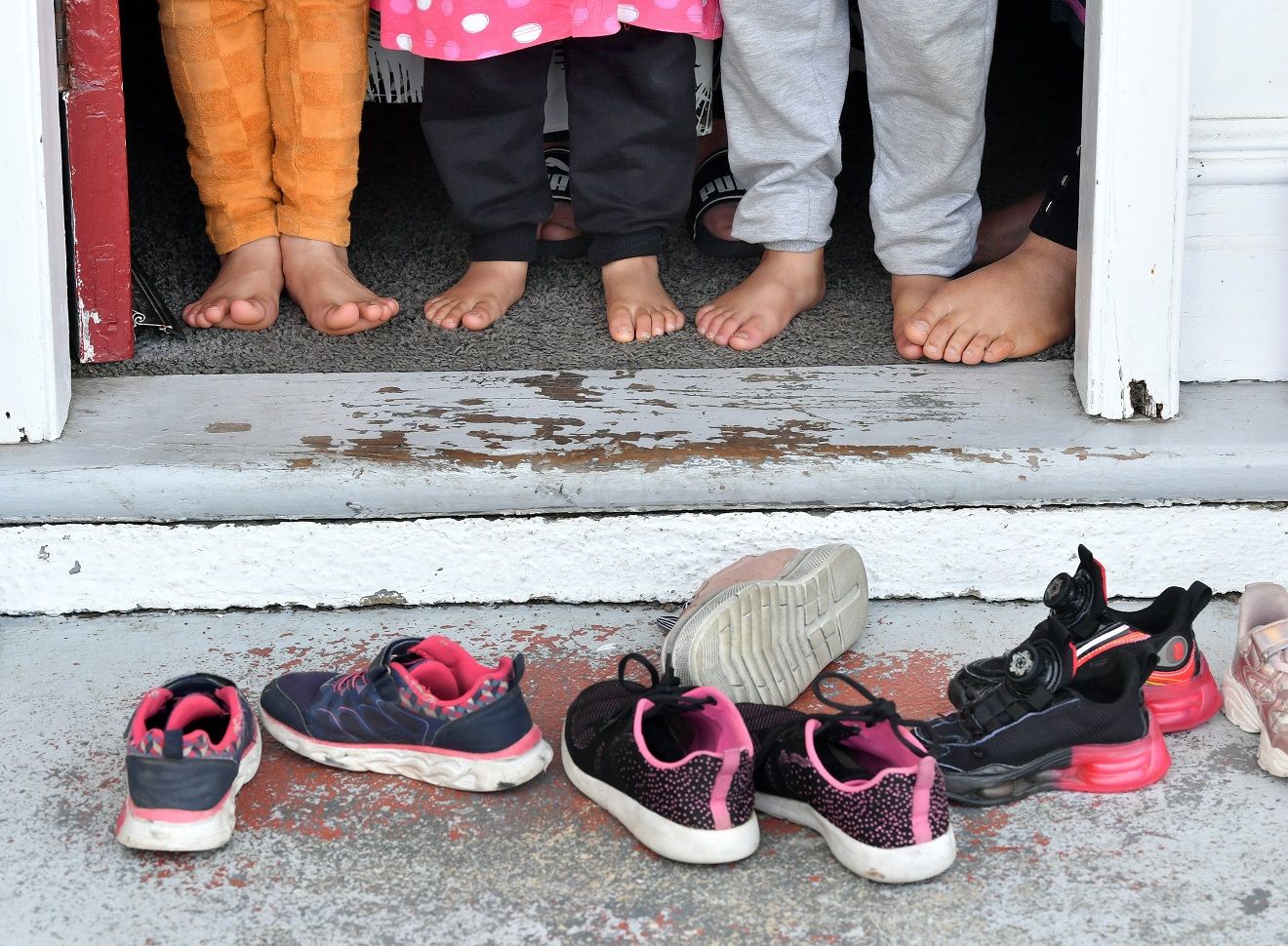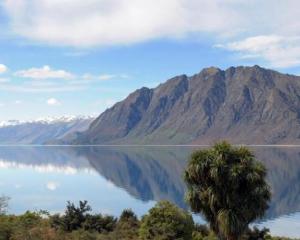
The large family of former refugees are on the waiting list for a Kāinga Ora home in Dunedin and say they feel "threatened and harassed" by an Emerge worker, who indicated little hope of a social home in the city soon.
Emerge is contracted to provide transitional housing by the Ministry of Housing and Urban Development.
In a recording obtained by the Otago Daily Times the worker tried to point them to move to any big North Island city and pretend to be homeless.
The charade would make them a "top priority" for a Kāinga Ora house there, he said.
The family, originally from war-torn Syria, accepted a government offer to leave a Lebanon refugee camp for Dunedin in 2018.
They have lived in Emerge-run "transitional" accommodation, with no securely fenced outdoor play space, for nearly two years.
Before that, they had different housing solutions in the city, including motels, private rentals and being put up by a friend.
The family — who do not want to be named — said they felt "stressed out, tired and physically and mentally ill from all the moving around".
They knew they were a high priority on the waiting list to be housed in a Dunedin Kāinga Ora home and did not want to leave the city.
In the recording, the Emerge worker, who calls himself a "housing navigator", outlines the go-north scam to a friend of the family.
The worker, whom the ODT has chosen not to name, made the call from the family’s home.
Saying he "cannot advise" within his professional capacity, the worker recommended the family friend could help the family "imagine" they could go to "Auckland, Hamilton or Wellington during the Christmas vacation, with the whole family".
Once there, the family could go to a Ministry of Social Development (MSD) office and pretend a private rental there had fallen through — which, he said, would put them at the top of the list for a social home.
The family could "contact MSD and tell them that arrangement didn’t work out ... . and now they are homeless ... and by telling MSD that ... they are the top priority of the Auckland team, or the Hamilton team or the Wellington team, wherever they are".
The housing navigator added that "as a well-wisher you can actually let the family know the reality of Dunedin, which is even if they stay in Dunedin for another year, we don’t know as current properties are occupied".
The family were also told by text message from Emerge they could shift to another Emerge transitional house — about 1000km away in Hamilton.
Moving to Hamilton "opens doors to North Island. This is the only opportunity in front of you, to move into Hamilton, which is one hour and 30 minutes away from Auckland."
This move would resolve "the present issues you’re experiencing ... Please think over and make good decisions for your family. MSD can look into air tickets for the whole family if you accept."
A further text message said the family’s other option was to "wait patiently" in Dunedin.
The family are required to view private rentals here — and were warned in a meeting this month by Emerge that if they did not, they could forfeit future government-funded housing help.
The friend who was spoken to by the Emerge housing navigator described the tactics as trying to "get rid of them through scaremongering".
The family say they have been requesting a fence to create a safe play area outside their transitional house since they moved in.
Since the ODT started raising their plight with Emerge in December, one side of fencing has been built.
MSD regional commissioner Steph Voight "strongly advised" the family "not to take any actions ... such as moving cities to apply for housing assistance".
Ms Voight acknowledged the supply of public housing was "very tight and finding space for a large family can be particularly challenging".
There were many families waiting, many with "significant and complex needs".
The family had turned down offers to consider rental houses, she said.
"By insisting on only a public house, which cannot be guaranteed ... the family are subjecting themselves to ongoing housing instability."
Their combined social benefits were "enough to afford a range of suitable properties".
Emerge chief executive John Cook said it was "actively investigating the allegations" about the housing navigator.
Mr Cook said the charity "unequivocally opposes any unethical practices aimed at accessing housing support".
"Our primary commitment is to support individuals and whānau in accessing housing support within their community of choice."
Further evidence of the navigator’s suggestions was provided, but Mr Cook said he was unable to comment on it by deadline.
Emerge considered it had taken all reasonable and practicable steps to place this family into suitable accommodation, he said.
"Working in partnership with us, the whānau have a responsibility to continue applying for suitable housing options, including affordable and appropriate private rentals."











